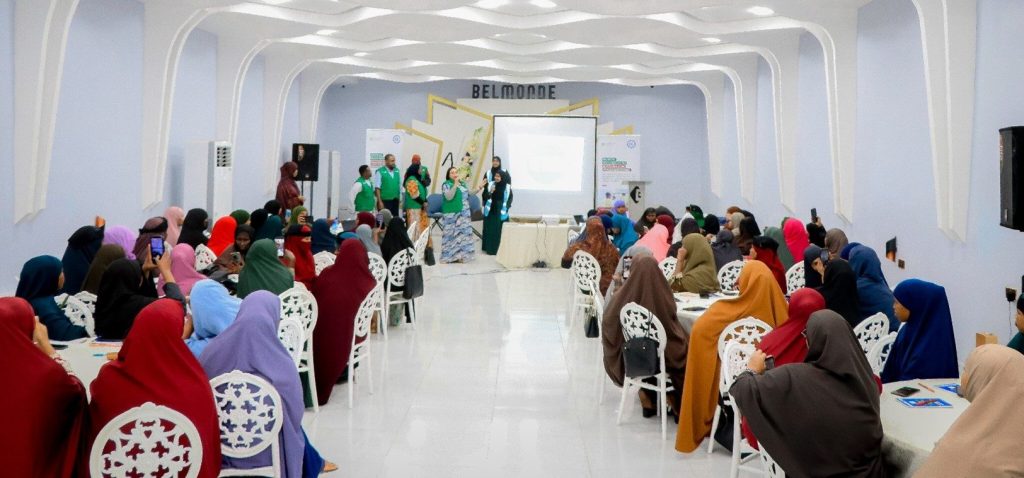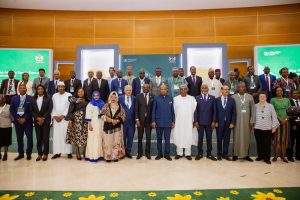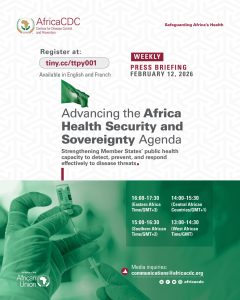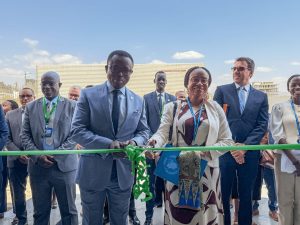Somalia’s health system, after years of conflict, still grapples with limited funding and recurrent climate-related crises. In the aftermath, weak surveillance and minimal community-level reporting persist, hampering the detection and response to threats such as cholera, measles and respiratory infections.
The Africa Centres for Disease Control and Prevention (Africa CDC), with support from the Korea International Cooperation Agency (KOICA) and in partnership with Somalia’s Ministry of Health and National Institute of Health, set out to strengthen emergency preparedness and infectious disease surveillance under the “Enhancing Health Security and Infectious Disease Preparedness in Africa” initiative.
This collaboration resulted in an intensive six-day training programme to equip 105 female Community Health Workers (CHWs) with the skills to identify, report and respond to potential outbreaks swiftly.
The training, held in Mogadishu in August, introduced participants to community case definitions for epidemic-prone diseases, public health signal identification and emergency response protocols.
For the first time in Somalia, health officials developed and disseminated a standardised Community Public Health Signal List and community case definitions to harmonise reporting and strengthen coordination between community and national levels.
“These women are the heartbeat of their communities,” said Faiza Hassan, Grants and Partnership Officer, NIH. “When a mother recognises the signs of measles or cholera and reports it immediately, she saves lives not only in her home but across her district.”
The NIH’s Public Health Emergency Operations Centre (PHEOC) established the Public Health Alert Desk to support this new reporting network. Officially launched on 11 August 2025 by Dr Mariam Mohamed, State Minister of Health, the desk serves as a central hub for receiving, verifying and managing reports from community health workers. The desk is equipped with new computer systems, Uninterruptible Power Supply units and landlines, and is now operational, bridging the gap between communities and national health authorities. It has greatly improved the speed of verification and response to alerts on suspected cholera and respiratory diseases.
“The female health workers are not only public health sentinels; they are also trusted advocates for mothers and children,” said Dr Mohamed. “They bring health services closer to the people and ensure no health threat goes unnoticed.”
Following the training, 100 CHWs and five supervisors were deployed across 27 communities in the Banadir region between August and September 2025. During this period, they visited 18,983 households, reaching more than 104,000 people with key health messages on vaccination, WASH, malnutrition, maternal and child health, tuberculosis and family planning. Vaccination awareness reached the largest share, with 58% of all households visited, demonstrating the CHWs’ vital role in increasing immunisation coverage and addressing misinformation.
A few weeks after the training, a supervisory visit in October by the Africa CDC team confirmed that the impact of training female CHWs was immediate and measurable. A total of 1,426 referrals were made to health facilities, with unvaccinated children accounting for 49%, diarrhoeal diseases 22%, and suspected diphtheria and tuberculosis among other causes. In total, female CHWs reported over 10,500 public health alerts, feeding real-time information into the national surveillance system.
This initiative has not only strengthened disease surveillance but also empowered women as key actors in public health, said Dr Kassim Abdulrahman, Regional Emergency Preparedness and Response Officer and KOICA Project Coordinator. Female CHWs—many of whom are mothers, caregivers and respected community figures—are bridging the gap between homes and health facilities, improving maternal and child health outcomes and building public trust in health systems.
The outcomes of the Somalia CHW programme demonstrate that empowering women at community level leads to stronger, more resilient health systems. Through their dedication, 105 women have not only improved early detection and response to disease outbreaks but also sparked a shift towards sustainable, community-led health security.
“For the first time, I feel part of the system that protects my community. We are not just reporting diseases; we are protecting our children’s future,” said Naimo Mohamed Abdulle, CHW supervisor.
Somalia’s journey towards stronger health security is one of empowerment, trust and transformation, where women lead from the frontlines to safeguard their communities and build a healthier, more resilient nation.







